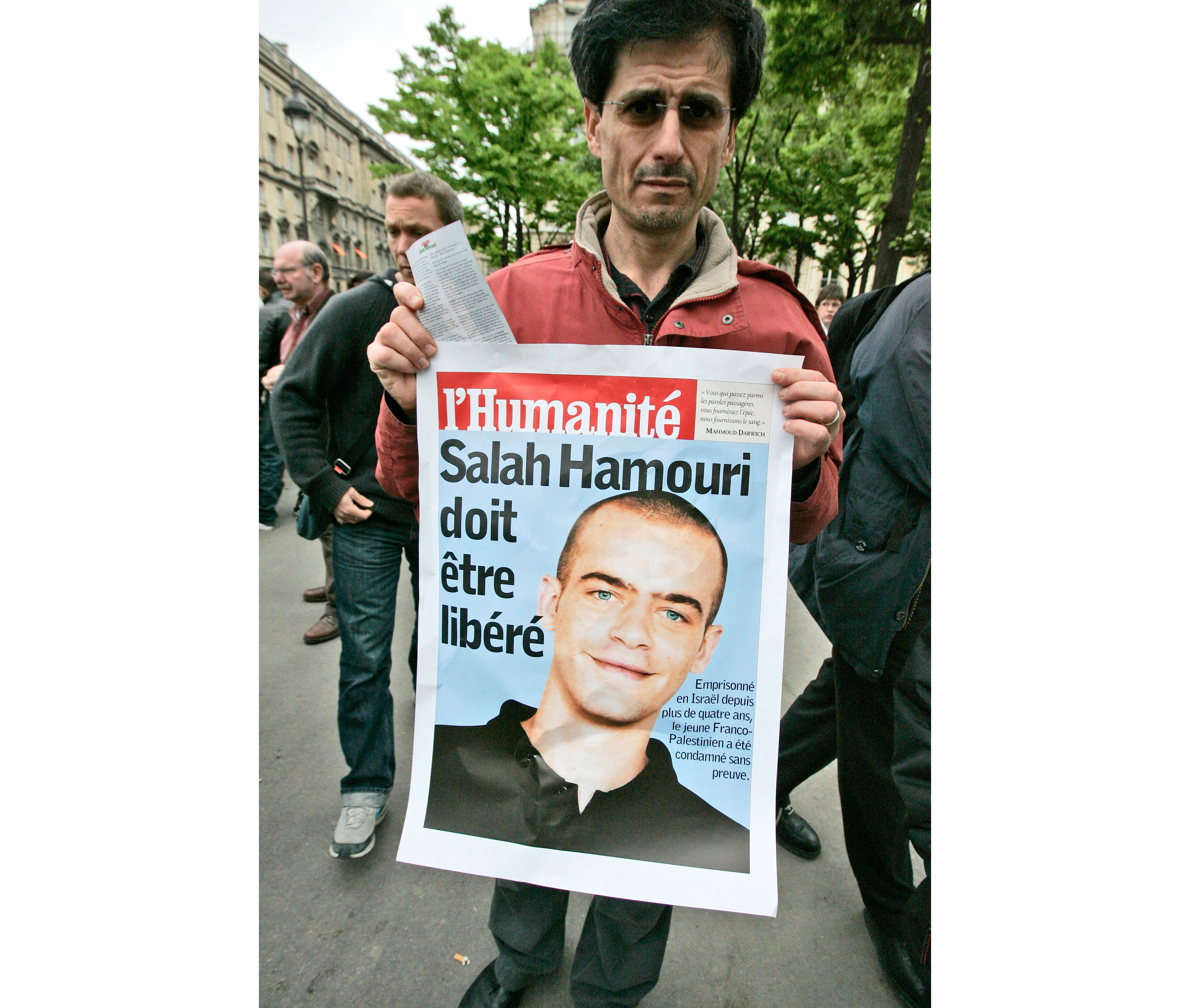Israeli deportation of Palestinian activist on hold
Israel will have to wait to deport a Palestinian lawyer and activist to France for at least several weeks

Israel will have to wait to deport a Palestinian lawyer and activist to France for at least several weeks.
Saleh Hammouri appeared at a court hearing near Tel Aviv on Tuesday. No decisions were made, and another hearing was set for Jan. 1, said Dani Shenhar, one of his lawyers. He remains in Israeli custody.
Hammouri has been held since last March under administrative detention — an Israeli tool that allows it to hold suspected militants without charge for months at a time.
Israel's interior minister, Ayelet Shaked, announced last week that she would deport Hammouri as soon as possible after his detention ended on Sunday.
The case has underscored the fragile status of Jerusalem's Palestinian residents and sparked a diplomatic row with France. Hammouri, who was born in Jerusalem, has French citizenship.
Israel accuses Hammouri of membership in the Popular Front for the Liberation of Palestine, which has been labeled a terrorist group by Israel and the U.S.
Israel captured east Jerusalem, home to the city’s most important religious sites, in the 1967 Mideast war and annexed the area in a step that is not internationally recognized. It considers the entire city to be its capital, while the Palestinians claim east Jerusalem as the capital of a future state.
Most Palestinians in east Jerusalem are Israeli residents, but not citizens. This allows them freedom of movement, the ability to work and access to Israeli social services, but they are not allowed to vote in national elections. Residency rights can be stripped if a Palestinian is found to live outside the city for an extended period or in certain security cases.
France has told Israel that it opposes the planned expulsion, French Foreign Ministry spokeswoman Anne-Claire Legendre said Monday in an online briefing.
“He must be able to exercise all his rights and lead a normal life in Jerusalem, his city of birth and residence,” she said, adding that French officials have met with Israeli counterparts to express their opposition.